S. James Anaya
Course: International and Comparative Law on Indigenous Peoples
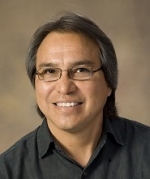
S. James Anaya is a Regents Professor and the James J. Lenoir Professor of Human Rights Law and Policy at the University of Arizona James E. Rogers College of Law (USA), where he teaches and writes in the areas of international human rights and issues concerning indigenous peoples. Professor Anaya is a graduate of the University of New Mexico (B.A., 1980) and Harvard Law School (J.D., 1983). He was on the law faculty at the University of Iowa from 1988 to 1999, and he has been a visiting professor at Harvard Law School, the University of Toronto, and the University of Tulsa. Among his numerous publications are his acclaimed book, Indigenous Peoples in International Law (Oxford Univ. Press, 1996, 2d. ed. 2004), and his widely used textbook, International Human Rights: Problems of Law, Policy and Process (Wolters Kluwer, 6th ed. 2011) (with Hurst Hannum and Dinah Shelton).
Prior to becoming a full time law professor, he practiced law in Albuquerque, New Mexico, representing Native American peoples and other minority groups. For his work during that period, Barrister magazine, a national publication of the American Bar Association, named him as one of “20 young lawyers who make a difference.” Professor Anaya has lectured in many countries throughout the world. He has advised numerous indigenous and other organizations from several countries on matters of human rights and indigenous peoples, and he has represented indigenous groups from many parts of North and Central America in landmark cases before courts and international organizations. Among his noteworthy activities, he participated in the drafting of the United Nations Declaration on the Rights of Indigenous Peoples and was the lead counsel for the indigenous parties in the case of Awas Tingni v. Nicaragua, in which the Inter-American Court of Human Rights for the first time upheld indigenous land rights as a matter of international law.
In 2008 the United Nations Human Rights Council appointed Professor Anaya as its Special Rapporteur on the Rights of Indigenous Peoples, a position in which he served until June 2014. In that capacity he monitored the human rights conditions of indigenous peoples worldwide, addressed situations in which their rights were being violated, and promoted practical measures to secure indigenous peoples’ rights, travelling frequently to meet with government officials and visit indigenous communities.
Aharon Barak
Course: Proportionality, Constitutional Rights And Their Limitations
Aharon Barak, born in Lithuania in 1936, is married and the father of four. He studied law, economics and international relations at the Hebrew University in Jerusalem. Barak received an MA in law in 1958, and a doctorate in 1963. He was appointed Associate Professor of Law at the Hebrew University in 1968 and became Dean of that Faculty in 1974. From 1975-8, he occupied the position of Attorney General of Israel, an appointed and independent position in the Ministry of Justice overseeing the justice system. He was appointed to the Supreme Court of Israel in 1978 and became its President in 1995. His retirement from the Court took place in September 2006 when he reached the age of mandatory retirement. He has received a number of prizes and honours, including the Kaplan Prize for excellence in science and research and the Israel Prize in legal sciences as well as numerous honorary degrees. He is the author of a number of books in Hebrew and in English as well as numerous articles on a wide variety of legal topics. His publications in English include Judicial Discretion, Purposive Interpretation in Law and The Judge in a Democracy, from Princeton University Press and Proportionality, Constitutional Rights And Their Limitations, from Cambridge University Press.
Lionel Bently
Course: Key Concepts in Trade Mark Law
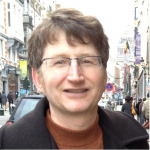
Lionel Bently is the Herchel Smith Professor of Intellectual Property Law and Director of the Centre for Intellectual Property and Information Law at the University of Cambridge. He is also a Professorial Fellow of Emmanuel College, Cambridge. He is a barrister (Inner Temple, 2009) and door tenant at 11 South Square, Gray’s Inn.
His research interests include the history of intellectual property law. He is co-author (with Brad Sherman) of The Making of Modern Intellectual Property Law: The British Experience (1760-1911) (Cambridge: CUP, 1999) and Intellectual Property Law (4th ed, 2014, forthcoming), and (with Tanya Aplin, Simon Malynicz and Phill Johnson) of Gurry on Confidence: The Law of Confidentiality (Oxford: OUP, 2012).
He recently succeeded Paul Geller as the general editor of International Copyright Law and Practice (2014-). He is a founding director of ISHTIP, the International Society for the History a Theory of intellectual Property. He is co-editor, with Martin Kretschmer, of the of the AHRC-funded web-resource, Primary Sources on Copyright in 5 Jurisdictions, www.copyrighthistory.org A sixth jurisdiction, Spain, was added to the resource in 2012, and the Netherlands will join in 2014.
He has been heavily involved in copyright policy at the UK and EU levels. He was on the drafting committee of the ‘Wittem Group’ of European Copyright Professors working on a European Copyright Code. He is a member of the European Copyright Society and will become the second chair of the Society in 2015.
Martin Friedland
Course: Issues in Criminal Justice
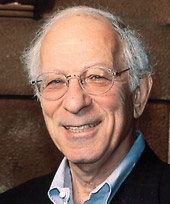 Martin Friedland, C.C., Q.C., is University Professor and James M. Tory Professor of Law Emeritus at the Faculty of Law. He holds a B.Comm., LL.B., and honorary LL.D. from the University of Toronto, and a Ph.D. and LL.D from Cambridge University. Professor Friedland taught at Osgoode Hall Law School until 1965 when he joined the University of Toronto as an associate professor. He was promoted to professor in 1968 and served as dean from 1972-1979. He also served as a full time member of the Law Reform Commission of Canada in Ottawa from 1971 to 1972. He was appointed a fellow of the Royal Society of Canada in 1983 and in 1985 was awarded the Canadian Association of Law Teachers/Law Reform Commission of Canada Award for an 'Outstanding Contribution to Legal Research and Law Reform.' In 1987 he was awarded the University of Toronto Alumni Faculty Award, in 1990 was appointed an Officer of the Order of Canada, and in 2003 was made a Companion of the Order of Canada. In 1994 he received the Canadian Bar Association's Ramon John Hnatyshyn Award and the Criminal Lawyers Association's G. Arthur Martin Award, and in 1995 was awarded the Canada Council Molson Prize in the Humanities and Social Sciences for 'outstanding achievements and exceptional contribution to the enrichment of the cultural life of Canada.' He received the Royal Society of Canada's John William Dawson Medal in 2003 for 'important contributions of knowledge in multiple domains'. He is currently a fellow of Massey College. Professor Friedland specializes in Criminal Law and is author or editor of eighteen books including Detention Before Trial, Double Jeopardy, Access to the Law, A Place Apart: Judicial Independence and Accountability in Canada, The Trials of Israel Lipski, The Case of Valentine Shortis and The Death of Old Man Rice, as well as many law review articles and reports. His book The University of Toronto: A History was published in 2002, on the 175th anniversary of the University's foundation. A second edition, with a new introduction, was published in 2013.
Martin Friedland, C.C., Q.C., is University Professor and James M. Tory Professor of Law Emeritus at the Faculty of Law. He holds a B.Comm., LL.B., and honorary LL.D. from the University of Toronto, and a Ph.D. and LL.D from Cambridge University. Professor Friedland taught at Osgoode Hall Law School until 1965 when he joined the University of Toronto as an associate professor. He was promoted to professor in 1968 and served as dean from 1972-1979. He also served as a full time member of the Law Reform Commission of Canada in Ottawa from 1971 to 1972. He was appointed a fellow of the Royal Society of Canada in 1983 and in 1985 was awarded the Canadian Association of Law Teachers/Law Reform Commission of Canada Award for an 'Outstanding Contribution to Legal Research and Law Reform.' In 1987 he was awarded the University of Toronto Alumni Faculty Award, in 1990 was appointed an Officer of the Order of Canada, and in 2003 was made a Companion of the Order of Canada. In 1994 he received the Canadian Bar Association's Ramon John Hnatyshyn Award and the Criminal Lawyers Association's G. Arthur Martin Award, and in 1995 was awarded the Canada Council Molson Prize in the Humanities and Social Sciences for 'outstanding achievements and exceptional contribution to the enrichment of the cultural life of Canada.' He received the Royal Society of Canada's John William Dawson Medal in 2003 for 'important contributions of knowledge in multiple domains'. He is currently a fellow of Massey College. Professor Friedland specializes in Criminal Law and is author or editor of eighteen books including Detention Before Trial, Double Jeopardy, Access to the Law, A Place Apart: Judicial Independence and Accountability in Canada, The Trials of Israel Lipski, The Case of Valentine Shortis and The Death of Old Man Rice, as well as many law review articles and reports. His book The University of Toronto: A History was published in 2002, on the 175th anniversary of the University's foundation. A second edition, with a new introduction, was published in 2013.
Zhaojie (James) Li
Course: Introduction to the Legal System of the People's Republic of China
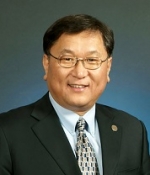
Professor Li Zhaojie (James Li) received his LL.B. from Peking University, both his LL.M. and Master in Information and Library Studies from the University of California at Berkeley, and his S.J.D. from the University of Toronto.
He is a Professor of International Law at Tsinghua University School of Law in Beijing, China. Prior to joining the faculty at Tsinghua Law School, he taught in the Department of Law at Peking University.
He served as Co-Chief Editor for the Chinese Yearbook of International Law and Vice President of the Chinese Society of International Law. He is widely published in both the English and Chinese languages.
Ruth Okediji
Course: International Intellectual Property and Development
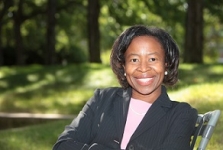
Ruth L. Okediji is the William L. Prosser Professor of Law at the University of Minnesota Law School, where she teaches copyright, trademarks, contracts and international intellectual property law. In 2013 she was awarded the Stanley V. Kinyon Award for best tenured professor at the Law School. She is an internationally renowned expert on the relationship between developing and developed countries in the international intellectual property system, and on development issues related to the harmonization of intellectual property rights. She has written, lectured and published extensively on these topics in leading national and international legal journals. Her books Patent Law in Global Perspective (co-authored with Margo Bagley) and International Patent Law and Policy (co-authored with Margo Bagley and Jay Erstling) were published in 2013 by Oxford University Press and West Publishing respectively. Professor Okediji is also co-author of the leading copyright casebook Copyright in a Global Information Economy (with Cohen, Loren & O’Rourke, Aspen).
Professor Okediji has served on national committees and as an expert with several inter-governmental organizations. From 2011-2012, she was a member of the U.S. National Academies Science, Technology and Policy Committee on the Impact of Copyright Policy on Innovation in the Digital Era. In 2013, she was the Lead Expert Negotiator for the Government of Nigeria at the Diplomatic Conference to Conclude a Treaty to Facilitate Access to Published Works by Visually Impaired Persons and Persons with Print Disabilities. Professor Okediji has also served as an expert for the United Nations Development Program’s (UNDP) flagship project on Innovation, Culture, Biogenetic Resources, and Traditional Knowledge, and the United Nations Conference on Trade and Development (UNCTAD)-ICTSD Capacity Building Project on Intellectual Property Rights and Sustainable Development. She has led expert teams on technical assistance projects in Sub-Saharan Africa and the Caribbean, including serving as a TRIPS Advisor to member countries in the South African Development Cooperation (SADC) under the auspices of the Commercial Law Development Program, U.S. Department of Commerce.
Professor Okediji is a member of the New York Bar Association, the American Bar Association and is the Vice President of the Order of the Coif. She is the past-Chair of the Section of Law and Computers for the American Association of Law Schools, and past-Chair of the Section on Intellectual Property. She has held visiting research positions at Harvard Law School and the Max Planck Institute for International and Comparative Patent, Copyright, Trademark and Unfair Competition Law in Munich, Germany. She has taught at Duke University School of Law, Emory Law School, the University of Haifa Law School (Israel), the University of St. Thomas School of Law, and University of Tilburg Law School (Netherlands).
Professor Okediji received her LL.B. in 1989 from the University of Jos, her LL.M and S.J.D. from Harvard Law School in 1991 and 1996 respectively.
Ayelet Shachar
Course: Who Belongs? Dilemmas of Citizenship and Immigration
 Ayelet Shachar is Canada Research Chair in Citizenship and Multiculturalism, and Professor of Law, Political Science, and Global Affairs at the University of Toronto. She has published and lectured widely on citizenship theory, immigration law, multiculturalism, cultural diversity and women's rights, law and religion in comparative perspective, highly skilled migration and global inequality.
Ayelet Shachar is Canada Research Chair in Citizenship and Multiculturalism, and Professor of Law, Political Science, and Global Affairs at the University of Toronto. She has published and lectured widely on citizenship theory, immigration law, multiculturalism, cultural diversity and women's rights, law and religion in comparative perspective, highly skilled migration and global inequality.
Shachar is the author of Multicultural Jurisdictions: Cultural Differences and Women's Rights (Cambridge University Press, 2001), for which she won the American Political Science Association 2002 Foundations of Political Theory Section Best First Book Award. Her latest book, The Birthright Lottery: Citizenship and Global Inequality (Harvard University Press, 2009) was named 2010 International Ethics Notable Book in recognition of its "superior scholarship and contribution to the field of international ethics." It has created a groundswell of interest among policymakers and academics alike.
Shachar has received excellence and research awards in three different countries: Canada, Israel, and the United States. She was nominated Member of the Institute for Advanced Study, Princeton, Fulbright Fellow, Distinguished Visiting Scholar at Princeton's Law and Public Affairs Program (LAPA), Emile Noël Senior Fellow at NYU School of Law, and the W. M. Keck Fellow in Legal Ethics and Professional Culture at Yale Law School. In recognition of her excellence in research and teaching as a faculty member at Toronto, she has received the University's Provostial Merit Increase Award for five consecutive years. She has published extensively in leading law reviews, social science, and political philosophy journals, including the Yale Law Journal, Theoretical Inquiries in Law, Journal of Political Philosophy, Harvard Civil Rights-Civil Liberties Law Review, NYU Law Review, Yale Journal of Law & the Humanities, Philosophy and Social Criticism, Political Theory, and Perspectives on Politics.
Shachar earned her LL.B in law and B.A. in political science, summa cum laude, from Tel Aviv University; LL.M. and J.S.D, both from Yale Law School. Before arriving at Yale, she was law clerk to Chief Justice Aharon Barak of the Supreme Court of Israel. In addition to delivering keynotes and lectures to academic and general audiences on five different continents, Shachar sits on the editorial boards of five peer-reviewed journals in her field and has provided pro-bono expert consultation to judges, governmental commissions and the World Bank, as well as non-governmental organizations specializing in citizenship, immigration and religious toleration. Shachar has held appointments as the Leah Kaplan Visiting Professor in Human Rights at Stanford Law School, and the Jeremiah Smith Jr. Visiting Professor of Law at Harvard Law School. Her new book, Olympic Citizenship (to be published by Oxford University Press), explores the legal and ethical challenges of international migration, focusing on the highly skilled. She was recently elecated a Fellow of the Royal Society of Canada.
Robert J. Sharpe
Course: Good Judgment: The Role of an Appellate Judge
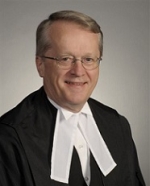
Robert Sharpe is a member of the Court of Appeal for Ontario. He taught at the Faculty of Law, University of Toronto from 1976 to 1988 and served under Chief Justice Brian Dickson as Executive Legal Officer at the Supreme Court Canada from 1988 to 1990. Robert Sharpe was appointed Dean of the Faculty of Law, University of Toronto in 1990, to the Ontario Court of Justice (General Division) in 1995 and to the Court of Appeal in 1999. He is a Fellow of the Royal Society of Canada, 1991, Senior Fellow of Massey College, and was awarded the Mundell Medal for Distinguished Contribution to Law and Letters in 2009. In 2011, he was appointed as a Visiting Professor, Oxford University and received honorary doctorate degrees from the Law Society of Upper Canada and the University of Windsor. His publications include Brian Dickson: A Judge’s Journey (with Kent Roach) (2003), The Charter of Rights and Freedoms (with Kent Roach) (5th ed. 2013), The Persons Case: The Origins and Legacy of the Fight for Legal Personhood (with Patricia McMahon) (2007) and The Lazier Murder, Prince Edward County, 1884 (2011



 Martin Friedland, C.C., Q.C., is University Professor and James M. Tory Professor of Law Emeritus at the Faculty of Law. He holds a B.Comm., LL.B., and honorary LL.D. from the University of Toronto, and a Ph.D. and LL.D from Cambridge University. Professor Friedland taught at Osgoode Hall Law School until 1965 when he joined the University of Toronto as an associate professor. He was promoted to professor in 1968 and served as dean from 1972-1979. He also served as a full time member of the Law Reform Commission of Canada in Ottawa from 1971 to 1972. He was appointed a fellow of the Royal Society of Canada in 1983 and in 1985 was awarded the Canadian Association of Law Teachers/Law Reform Commission of Canada Award for an 'Outstanding Contribution to Legal Research and Law Reform.' In 1987 he was awarded the University of Toronto Alumni Faculty Award, in 1990 was appointed an Officer of the Order of Canada, and in 2003 was made a Companion of the Order of Canada. In 1994 he received the Canadian Bar Association's Ramon John Hnatyshyn Award and the Criminal Lawyers Association's G. Arthur Martin Award, and in 1995 was awarded the Canada Council Molson Prize in the Humanities and Social Sciences for 'outstanding achievements and exceptional contribution to the enrichment of the cultural life of Canada.' He received the Royal Society of Canada's John William Dawson Medal in 2003 for 'important contributions of knowledge in multiple domains'. He is currently a fellow of Massey College. Professor Friedland specializes in Criminal Law and is author or editor of eighteen books including Detention Before Trial, Double Jeopardy, Access to the Law, A Place Apart: Judicial Independence and Accountability in Canada, The Trials of Israel Lipski, The Case of Valentine Shortis and The Death of Old Man Rice, as well as many law review articles and reports. His book The University of Toronto: A History was published in 2002, on the 175th anniversary of the University's foundation. A second edition, with a new introduction, was published in 2013.
Martin Friedland, C.C., Q.C., is University Professor and James M. Tory Professor of Law Emeritus at the Faculty of Law. He holds a B.Comm., LL.B., and honorary LL.D. from the University of Toronto, and a Ph.D. and LL.D from Cambridge University. Professor Friedland taught at Osgoode Hall Law School until 1965 when he joined the University of Toronto as an associate professor. He was promoted to professor in 1968 and served as dean from 1972-1979. He also served as a full time member of the Law Reform Commission of Canada in Ottawa from 1971 to 1972. He was appointed a fellow of the Royal Society of Canada in 1983 and in 1985 was awarded the Canadian Association of Law Teachers/Law Reform Commission of Canada Award for an 'Outstanding Contribution to Legal Research and Law Reform.' In 1987 he was awarded the University of Toronto Alumni Faculty Award, in 1990 was appointed an Officer of the Order of Canada, and in 2003 was made a Companion of the Order of Canada. In 1994 he received the Canadian Bar Association's Ramon John Hnatyshyn Award and the Criminal Lawyers Association's G. Arthur Martin Award, and in 1995 was awarded the Canada Council Molson Prize in the Humanities and Social Sciences for 'outstanding achievements and exceptional contribution to the enrichment of the cultural life of Canada.' He received the Royal Society of Canada's John William Dawson Medal in 2003 for 'important contributions of knowledge in multiple domains'. He is currently a fellow of Massey College. Professor Friedland specializes in Criminal Law and is author or editor of eighteen books including Detention Before Trial, Double Jeopardy, Access to the Law, A Place Apart: Judicial Independence and Accountability in Canada, The Trials of Israel Lipski, The Case of Valentine Shortis and The Death of Old Man Rice, as well as many law review articles and reports. His book The University of Toronto: A History was published in 2002, on the 175th anniversary of the University's foundation. A second edition, with a new introduction, was published in 2013.

 Ayelet Shachar is Canada Research Chair in Citizenship and Multiculturalism, and Professor of Law, Political Science, and Global Affairs at the University of Toronto. She has published and lectured widely on citizenship theory, immigration law, multiculturalism, cultural diversity and women's rights, law and religion in comparative perspective, highly skilled migration and global inequality.
Ayelet Shachar is Canada Research Chair in Citizenship and Multiculturalism, and Professor of Law, Political Science, and Global Affairs at the University of Toronto. She has published and lectured widely on citizenship theory, immigration law, multiculturalism, cultural diversity and women's rights, law and religion in comparative perspective, highly skilled migration and global inequality.